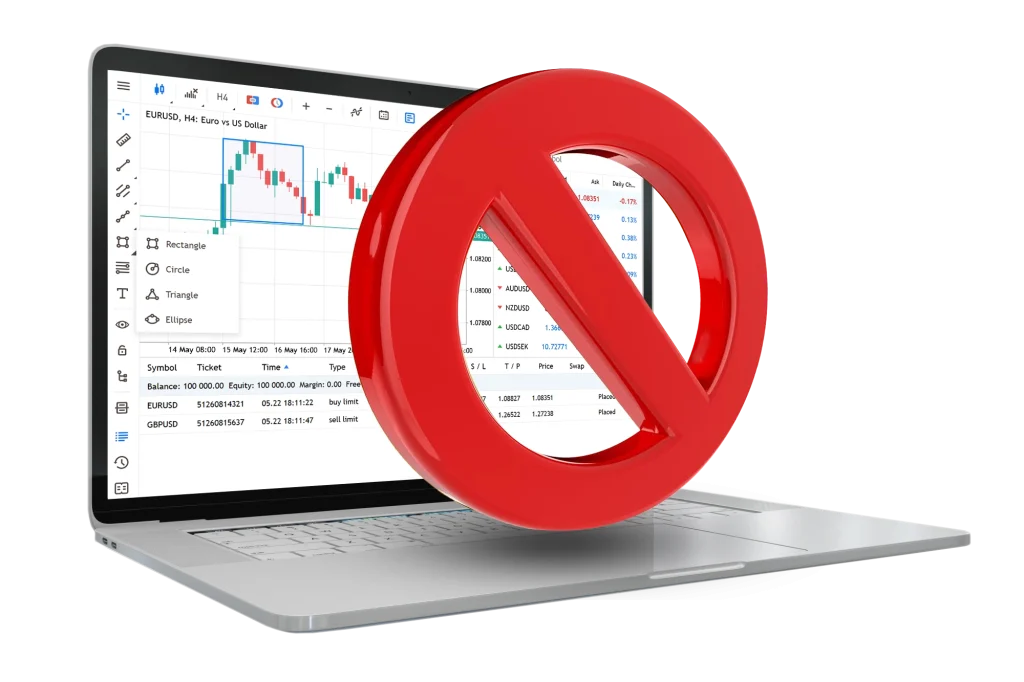What is Hedging?

What is hedging, and why is it banned in prop trading accounts and leads to rejection in prop trading challenges?
Hedging refers to various strategies used to reduce or eliminate risks associated with asset price fluctuations. These trades typically involve creating offsetting positions in financial markets to minimize the impact of price changes. Below, we define hedging in detail and explain the reasons for its prohibition in prop trading accounts:

Understanding Hedging
Characteristics:
Risk Reduction:
- The main goal of hedging is to reduce the risk associated with price fluctuations of financial assets. For instance, if you hold a long position, you might take an equivalent short position in the same asset or a similar one to mitigate risk.
Use of Different Financial Instruments:
- Hedging can be conducted using futures contracts, options, forex trades, and other derivatives.
Diverse Positions:
- It involves creating offsetting positions that compensate for potential losses due to market price changes.
Advantages:
Capital Protection:
- Provides a protective buffer against significant market fluctuations.
Financial Planning:
- Allows for better financial planning with more accurate cost and profit forecasts. avoiding unexpected market fluctuations.
Focus on Real Performance and Profitability
In prop trading accounts, the goal is to evaluate traders’ performance and their ability to generate real profits accurately. Hedging strategies can affect this assessment, which is why they may be disallowed during the evaluation and assessment process for traders.
Alternatives and Solutions
Alternative Strategies
Portfolio Diversification: Instead of using hedging, traders can use portfolio diversification to reduce risk.
Precise Analysis and Forecasting: Focusing on technical and fundamental analyses can lead to more accurate forecasting and reduce the need for hedging.
Training and Skill Development
Developing Risk Management Skills: Enhancing risk management skills and analytical abilities can lead to better portfolio management.

Risks and Drawbacks of Hedging
Reduced Potential Profit
Higher Costs
Due to the complexity of strategies and the need for offsetting trades, hedging can be costly.
Partial Protection
Hedging does not entirely eliminate risk; it only reduces it.
Limited Profitability
While it reduces risk, it also limits the opportunity for high profits.
Prohibition in Prop Trading Accounts
Potential Impacts:
Complexity in Performance Evaluation: Prop trading firms may want to view traders’ net results without the protective cover of hedging to assess real performance accurately.
Legal and Ethical Risks: If not aligned with company policies, hedging strategies might lead to legal and ethical issues.
Main Reasons
Focus on Raw Profitability: Prop trading firms typically aim for precise performance analysis of traders, and hedging strategies can obscure results, making analysis more difficult.
Complex Risk Management: Allowing hedging can complicate risk management systems and reduce the firm’s ability to monitor traders’ performance effectively.
Reduced Transaction Transparency: Hedging can decrease the transparency of traders’ actual results, making it harder to accurately evaluate traders’ abilities.
Although hedging can help reduce risk, it is prohibited in prop trading accounts due to its complexity and impact on traders’ performance transparency. In these environments, the focus is on traders’ ability to generate genuine net profits without relying on ambiguous strategies. Traders aiming for success in prop trading should work on improving their analytical skills and risk management and use clear, measurable strategies.

